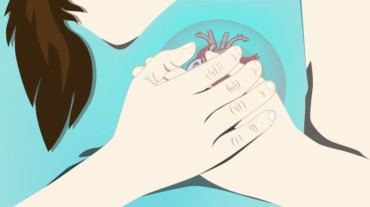
The American Thyroid Association commemorates World Thyroid Day every year to raise awareness about thyroid globally. But what does thyroid do?
Well, this butterfly-shaped organ releases hormones to regulate the body’s metabolism–the rate at which the body produces energy from nutrients and oxygen. This affects our body’s critical body functions, such as energy level and heart rate.
According to the US National Library of Medicine, about 12% of people will experience abnormal thyroid function at some point during their lives. Interestingly, they also claim that women are eight times more likely to develop a thyroid disorder than men.
A high or low level of thyroid hormones can overwork or slow down your metabolism and cause hypothyroidism (low thyroid levels) or hyperthyroidism (high thyroid levels).
Also, Read: This yoga routine for the thyroid gland will keep you hale and hearty
Here are some concerning symptoms of a thyroid disorder that you must be wary of:
1. Sudden weight gain or loss
A sudden change in weight for reasons that remain unexplained is one of the most common signs of a thyroid disorder. In hypothyroidism, sudden weight gain even when the calorie intake is constant may signal low levels of thyroid hormones.

However, if you start to lose weight unexpectedly, then it is a signal that the thyroid gland is producing more hormones than your body needs–which happens in the case of hyperthyroidism.
So, if the number on your weighing scale seems to be suddenly fluctuating, you need to look beyond lifestyle changes–like diet and exercise–and bring it up with your doctor.
2. Swelling on your neck
One of the most visible signs that something is wrong with your thyroid gland is swelling or enlargement in the neck. A swelling or goitre can be caused by both hyperthyroidism and hypothyroidism. It can also be caused by thyroid cancer or nodules growing inside the thyroid gland. So if you ever notice a swelling, you must get it medically examined immediately.
Select Topics of your interest and let us customize your feed.
PERSONALISE NOW3. Change in heart rate
Since an abnormal thyroid function can directly impact our heart, we must be conscious of the rate our heart beats at. While people with hypothyroidism may notice their heart rate getting slower than usual, alternatively hyperthyroidism may cause the heart to speed up.

If you feel that your heart has started pounding without any physical activity or excitement or a sudden increase in blood pressure, please consult with your doctor.
4. Sudden change in your mood and energy
One of the noticeable effects of a thyroid disorder is a change in our mood and energy levels. Feeling tired, sluggish, and depressed are signs of hypothyroidism.

On the other hand, if you begin to feel anxious, restless, irritable, or have trouble sleeping, then you may be suffering from hyperthyroidism.
5. Experiencing hair loss
A healthy thyroid function helps regulate all cells including our hair follicles. According to the US National Library of Medicine, about 25–30% of American patients seeing a specialist for hair loss Are found to have low levels of the thyroid hormone.

While fine or brittle hair might signal hyperthyroidism, a study found that coarsening of hair or patchy hair loss is a sign of hypothyroidism. Although other hormone problems can also cause unexpected hair loss, a medical examination can help identify if the core issue is a faulty thyroid function.
6. Feeling constantly hot or cold
An abnormal thyroid function can impact our body’s ability to regulate body temperature. Research suggests that people with hypothyroidism may often feel colder than usual. On the other hand, hyperthyroidism may make you experience hot flashes, causing excessive sweating and an aversion to heat.
7. Heavy or irregular periods
According to research, both irregular and heavy menstrual bleeding are linked to hypothyroidism. Though, irregular periods can also be caused by hyperthyroidism.

How though? When abnormal levels of the thyroid hormones interact with hormones that control the menstrual cycle, it can disrupt our menstrual cycle and impact ovaries and uterus. Since several reasons may cause heavy or irregular periods, you must consult with your gynecologist before coming to a conclusion.
While these symptoms visibly indicate the presence of a thyroid disorder, here are some other concerning symptoms that you must look out for. Dry skin, brittle nails, numbness or tingling in hands, and/or constipation indicate a low functioning thyroid (hypothyroidism). Alternatively, trembling hands, vision problems or diarrhea may be concerning symptoms of a high functioning thyroid ( hyperthyroidism).
If you experience several of these symptoms, you must see a doctor immediately.